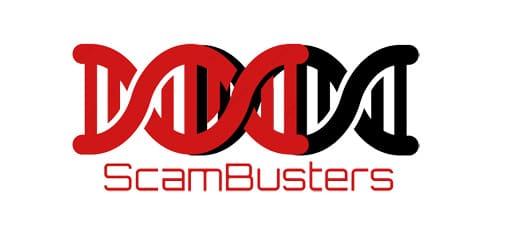Moneyweb 18th March 2024 by Ciaran Ryan
Marks has a claim of R135m against the collapsed bitcoin scheme of which he claims to be a 50% shareholder.
One of the driving forces behind Mirror Trading International (MTI), Clynton Marks, has failed in his attempt to remove the liquidators of the collapsed bitcoin Ponzi scheme in the Western Cape High Court.
Judge Mark Sher slapped Marks with a punitive costs order on the grounds that the application was motivated by a desire to avoid interrogation and that allegations of serious misconduct leveled by Marks against the liquidators were “entirely spurious”.
Marks was purportedly a 50% shareholder in MTI, though liquidators have disputed this.
He also has a R135.5 million claim against the MTI estate, which he says was a loan to the company. The liquidators claim that Marks in all likelihood is neither a shareholder nor a creditor in MTI, as no share certificates were produced at the time of the liquidation “and the ones that were subsequently produced were suspect”.
The liquidators say the R135.5 million “loan” did not belong to Marks and was merely round-tripped bitcoin that he had misappropriated from investors.
They are demanding repayment of R67 million to the estate and have launched an action seeking a declarator for R4.6 billion in damages against him.
Head of referrals
Marks is described as the head of MTI’s referral programme, and was previously involved with another pyramid scheme called BTC Global.
Marks and fellow applicant Henry Honiball were ordered to pay the costs of the case, including the costs of an interlocutory application by the South African Revenue Service (Sars), which intervened in the case to explain how it came to a tax assessment of R931 million against MTI – later reduced to R238 million.
Judge Sher added that MTI was one of the largest insolvencies in SA history.
Founder and CEO Johann Steynberg currently languishes in a Brazilian prison after fleeing SA in late 2020 when regulators started closing in on a scheme reckoned to have roped in more than 29 000 bitcoin (BTC), currently worth about R38 billion, from hundreds of thousands of investors around the world. Steynberg is currently being extradited back to SA.
MTI claimed to make returns of 10% a month using a forex trading bot, which the Financial Sector Conduct Authority investigated and found did not exist.
MTI participants had to invest in BTC and received referral bonuses for introducing new members. It all came crashing down in December 2020 when MTI stopped paying out demands for withdrawals.
Complexities
The vast number of participants makes this one of the most complex insolvencies in SA history, especially as liquidators are demanding repayment from thousands of investors who withdrew funds – but at today’s bitcoin prices. Bitcoin’s price has shot up nearly seven-fold since mid-2020 when MTI started aggressively marketing on social media.
One curious entry in the Sher judgment is the amount of BTC supposedly deposited and withdrawn by Marks. The omission of a digital point makes it look like he deposited 21 984 bitcoins into the MTI pool, and had withdrawn 219 719 BTC “to the value of R74.9 million, thereby making a profit, to the detriment of investors, of over R65 million”.
This is clearly a typo. In an earlier court filing the liquidators state that Marks deposited 22 BTC and withdrew about 220, valued at R75 million at the time of MTI’s liquidation.
Marks is claimed to have introduced just 16 investors to the scheme, yet he was found to have had more than 71 000 investors under his pyramid “downline”, which liquidators found “alarming, to say the least”.
The big winners in MTI are claimed to have accumulated their BTC by collecting commissions from the bitcoin deposited by investors on their “downlines”, which is a common remuneration system in multi-level marketing schemes.
To put these figures in context, the two largest corporate owners of BTC are BlackRock and MicroStrategy – both with close to 200 000 BTC each, currently valued at around $14 billion (R262 billion) apiece.
“As for the 400 bitcoins [Marks] allegedly loaned to the company [MTI] between October and December 2020 in terms of an oral agreement, forensic examiners and cybercrime investigators had found no records in MTI’s databases of any such transaction and [Marks] had been unable to provide any Binance account statements which proved that he had acquired the bitcoins from a crypto exchange or a 3rd party,” reads the judgment.
“Furthermore, the investigators had established that [Marks] had transferred bitcoins to Steynberg, and not to the company.”
Marks claimed that the liquidators had not acted in the best interests of creditors by allowing a “fake” claim for R6.2 million against the MTI estate by another company controlled by Steynberg, JNX Online, while another “fake” counterclaim by JNX liquidators against MTI for R7.2 million had created a conflict of interest between two sets of liquidators who Marks claimed were connected.
Marks also claimed that the liquidators were negligent in failing to file tax returns with Sars, triggering an audit and assessment for R931 million (later reduced to R238 million), which would have swallowed most of the roughly R1 billion in bitcoin recovered from an overseas broker used by MTI.
The liquidators responded that it was MTI and Steynberg that had failed to keep proper company accounts and had not submitted tax returns with Sars. They were forced to hire forensic investigators and accountants to reconstruct the company accounts, and this information was shared with Sars. In doing so, the respondents clearly acted in the best interests of the insolvent company and the general body of creditors.
Says Judge Sher’s ruling: “In my view, for the aforegoing reasons the allegations of impropriety which were levelled at the [liquidators] have been shown to be wholly without substance and the applicants have failed to show good and sufficient cause for the removal of the respondents as liquidators.”

